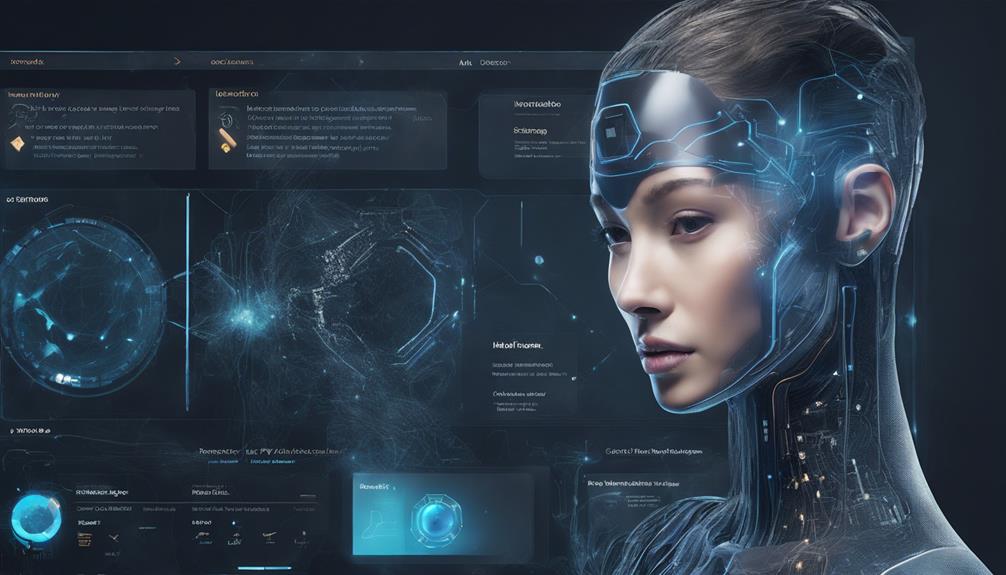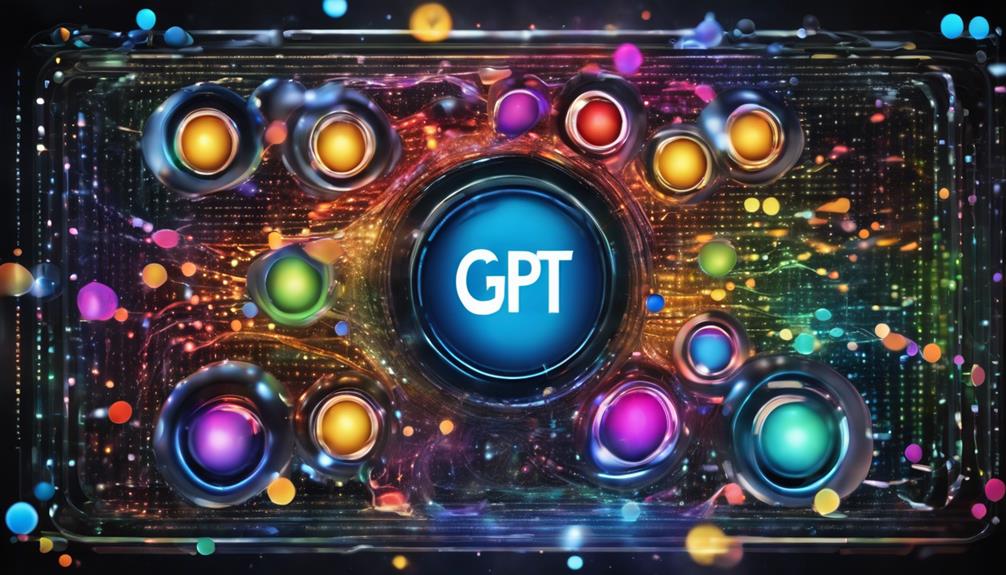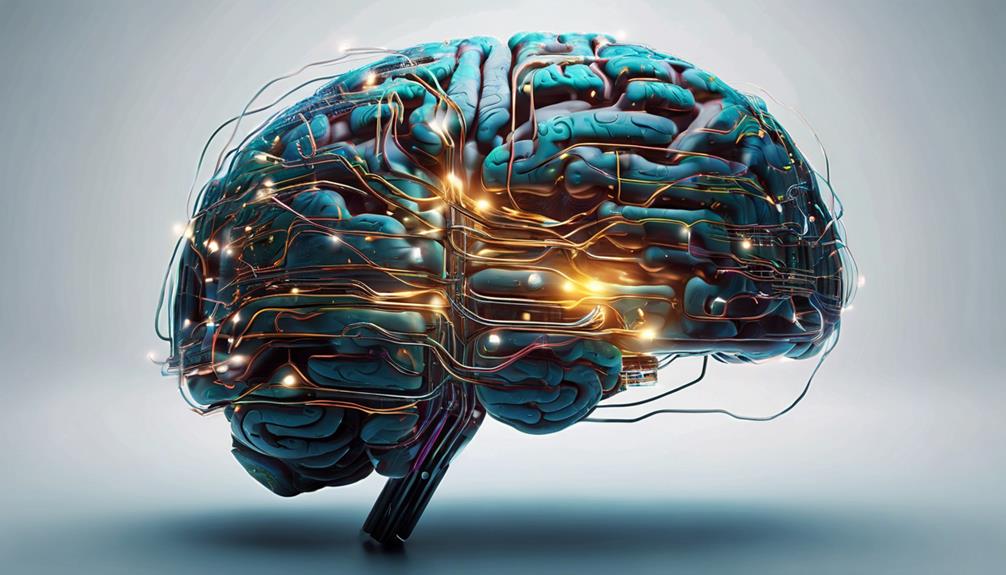As we explore the introduction of the new ‘Memory’ feature in GPT-4’s ChatGPT, we witness a significant shift in how AI interacts with users. This enhancement provides a tailored experience, but what implications does it have for data privacy and personalization?
Join us as we unravel the intricacies of this groundbreaking update and its potential impact on the future of AI technology.
Key Takeaways
- GPT-4 introduces a memory feature for personalized interactions.
- Users can control memory activation and data privacy settings.
- Memory enhances user experience by tailoring responses.
- Initial rollout targets ChatGPT users for feedback before wider availability.
Activation and Control Options
In managing the activation and control options for the memory feature in GPT-4, we can effectively toggle the memory feature on or off within our account settings to tailor our AI interaction experience. By enabling this feature, we empower ourselves with the ability to enhance personalization and streamline interactions based on our preferences.
This control over data usage ensures our privacy remains intact while benefiting from the convenience of a more tailored AI experience. Furthermore, the flexibility to activate temporary chats for quick, non-remembered conversations provides us with freedom in choosing the level of memory engagement.
Our ability to manage these controls empowers us to shape our AI interactions according to our individual needs and desires.
Custom Instructions Integration

Transitioning from the activation and control options for GPT-4's memory feature, the integration of custom instructions offers users the opportunity to provide direct guidance to enhance their AI interactions.
- Custom instructions allow users to provide specific guidance to ChatGPT.
- Users can shape responses based on individual preferences.
- This feature complements the memory function by offering manual input options.
- It enhances user interaction by providing context for responses.
Custom instructions empower users to steer their AI conversations in a manner that aligns with their needs and desires, promoting a more tailored and personalized experience with ChatGPT.
Privacy and Safety Standards
The evolution of privacy and safety standards in AI technology necessitates stringent controls to safeguard user data and ensure secure interactions within the digital landscape. When considering the implementation of AI features like memory, it becomes paramount to uphold user privacy and data protection. To emphasize the importance of this, we present a table showcasing key elements of privacy and safety standards in AI:
| Privacy and Safety Standards | Key Points |
|---|---|
| Data Control | Users can manage data usage. |
| Privacy Settings | Users have control over data usage. |
| Safety Measures | Focus on enhancing user control. |
Distinct Memories and Rollout

Upon initiating the rollout of distinct memories for GPT-4, users can anticipate a gradual introduction designed to enhance personalization capabilities within the AI model.
- Each GPT has its own memory for personalized interactions.
- Memories aren't shared between different GPTs.
- Enabling memory on GPTs enhances user experience by remembering preferences.
- Memory feature helps in tailoring recommendations without repeated inputs.
This phased approach ensures that users experience the benefits of personalized interactions while allowing for feedback incorporation and fine-tuning before a broader release.
The focus on user input and gradual implementation aims to optimize the efficacy of GPT-4's memory feature for a diverse range of users, reflecting a commitment to enhancing user experiences.
Integration With Other AI Tools
Moving from the discussion on distinct memories and the gradual rollout for GPT-4, the integration with other AI tools underscores a pivotal advancement in personalization capabilities within the AI landscape. The alignment of GPT-4's memory feature with the trend of personalization in AI models signals a significant leap in enhancing user experiences.
Co-pilot, a recent AI tool introduction with personalization features, complements this trajectory. The convergence of personalization options across AI tools not only boosts user efficiency but also showcases the evolving sophistication of AI technologies for tailored interactions.
This cross-tool synergy not only benefits individual AI systems but also contributes to a broader trend in AI development, emphasizing the increasing importance of personalized user interactions in the evolving AI ecosystem.
Frequently Asked Questions
How Does Gpt-4's Memory Feature Impact the Speed and Efficiency of Responses in Chat Conversations?
The memory feature in GPT-4 significantly enhances the speed and efficiency of responses in chat conversations. By storing and recalling key details, it minimizes the need for repetitive information, allowing for more streamlined interactions.
This feature tailors responses based on remembered preferences, leading to quicker and more relevant replies. Over time, as the memory improves with use, the overall efficiency of communication within chats is notably optimized.
Can Users Set Specific Expiration Dates for Memories Stored by Gpt-4?
Absolutely, users can't set specific expiration dates for memories stored by GPT-4 currently. While the feature allows remembering and forgetting specific information, setting precise memory expiration dates isn't supported.
This limitation might be addressed in future updates based on user feedback and evolving privacy standards. As of now, users have control over what GPT-4 remembers but not the option to set exact memory expiration dates.
Are There Any Limitations on the Types of Information That Gpt-4's Memory Feature Can Remember?
Yes, there are limitations on the types of information GPT-4's memory feature can remember. While it can store various details for personalized responses, sensitive data like health information shouldn't be shared.
Users have control over what's remembered, ensuring privacy and security. GPT-4's memory feature is designed to enhance user experience while respecting boundaries set by users, safeguarding against potential risks associated with storing certain types of information.
How Does Gpt-4's Memory Feature Adapt to Changes in User Preferences Over Time?
As users interact with GPT-4, its memory feature dynamically adjusts to evolving preferences. Over time, GPT-4 refines its responses based on past interactions, learning and adapting to user preferences.
Through continuous engagement, the system fine-tunes its understanding of individual nuances, tailoring responses to align more closely with changing preferences.
This adaptive capability ensures that GPT-4 can provide increasingly personalized and relevant responses as user preferences evolve.
Will Gpt-4's Memory Feature Be Compatible With Third-Party AI Tools for Seamless Integration in Different Applications?
Absolutely, GPT-4's memory feature is designed for seamless integration with third-party AI tools. This compatibility ensures a versatile and interconnected AI ecosystem, enhancing functionality across various applications.
Conclusion
In conclusion, the release of GPT-4's 'Memory' feature in ChatGPT marks a significant leap forward in AI technology. With enhanced personalization and efficiency, users can now enjoy tailored responses based on individual preferences and information.
The irony lies in the fact that while AI continues to evolve and remember more about us, we must remember to safeguard our privacy and data in this digital age. The future of AI is bright, but let's not forget the importance of protecting our information.









